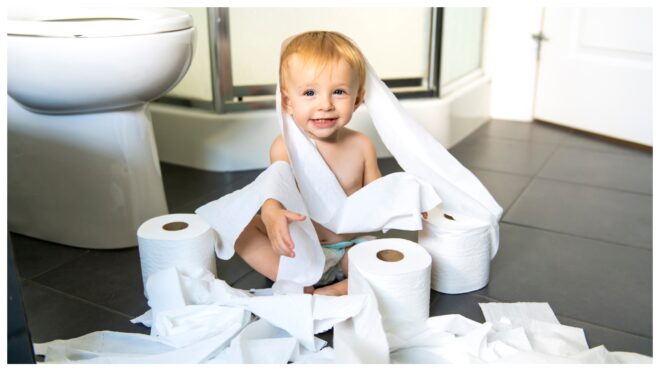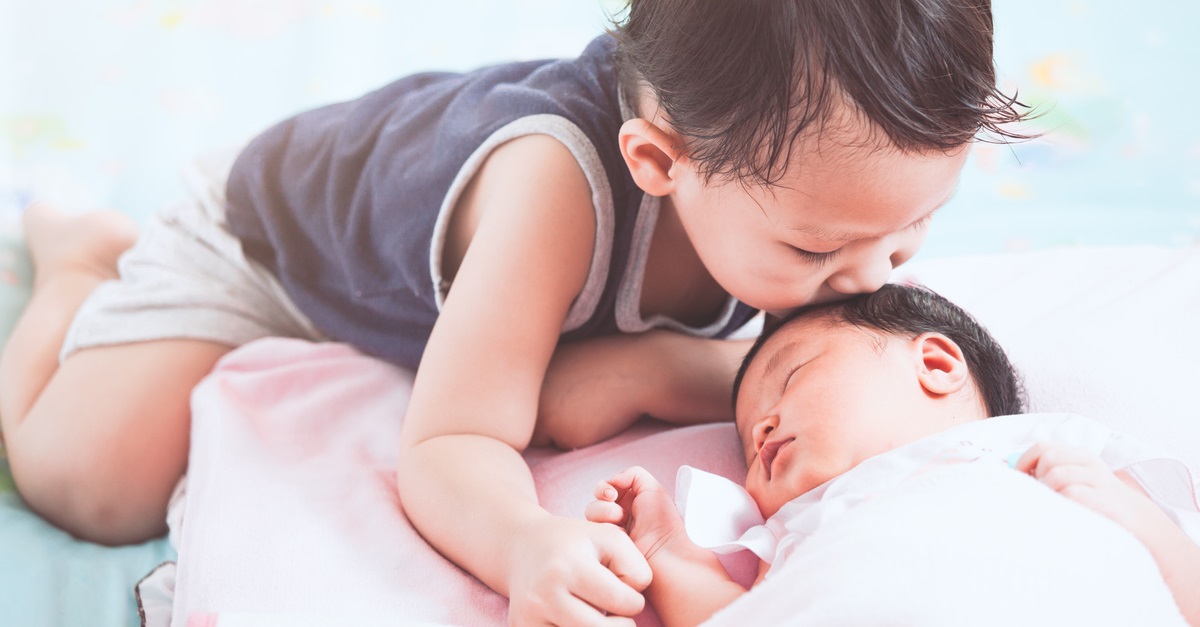
Having a baby is a joyous — if not terrifying — moment in life. While the second one might seem a little easier than the first (since after one, you're more or less a parenting pro), there are still a lot of changes when you choose to further expand your family.
And one big change is knowing that your relationship with your firstborn will be slightly different. Yes, they'll always be special — they're the ones who helped you earn those parenting titles. But now they're not the center of your world anymore. They have to split that role in half with someone else.
More from LittleThings: My Baby Is A Great Sleeper, Here’s How It Could Kill Him
It can be scary to wonder what's ahead. For example, what happens if there's a jealousy issue between your child and the new baby? This one's very common, since newborns demand a lot of time and attention.
One of the best things you can do is prep your child beforehand. Here are a few ways you can prepare a toddler for the new arrival.
1. Read Books That Talk About Siblings
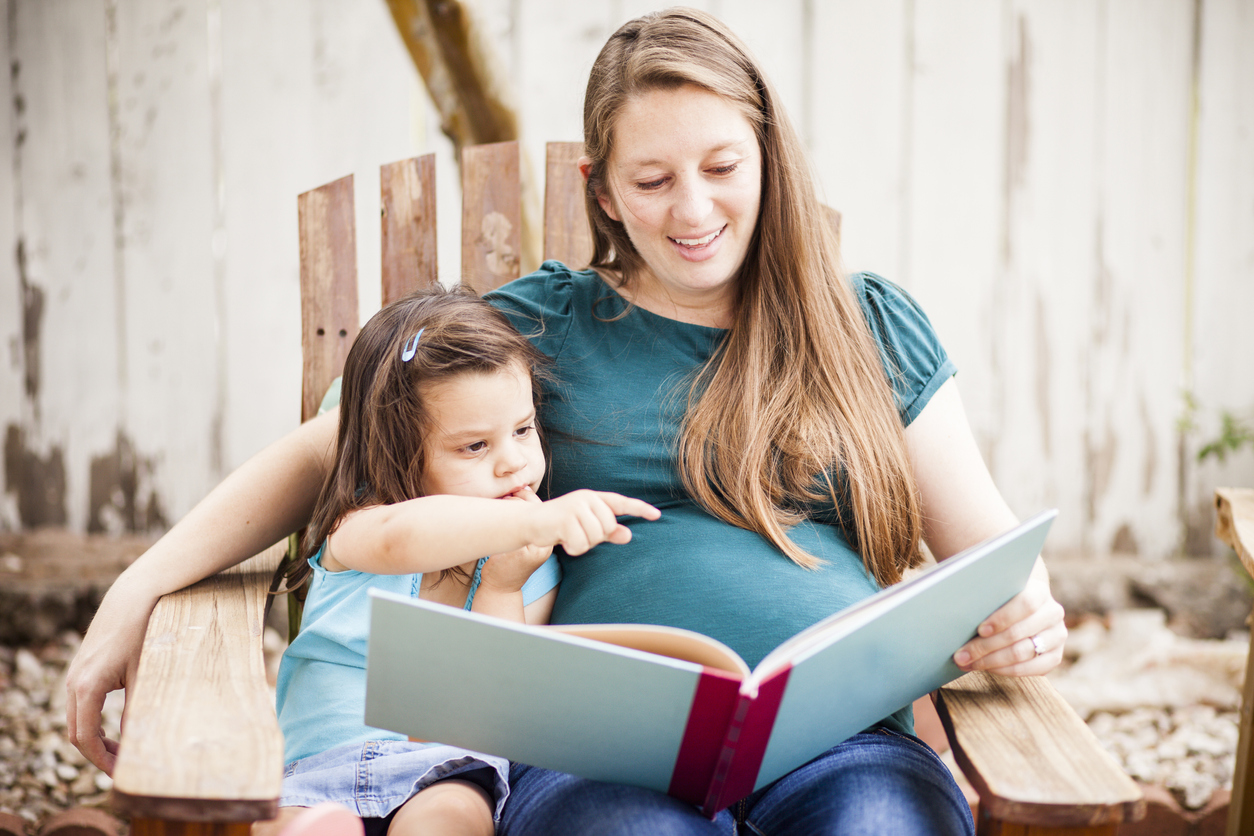
Your child will be able to see that siblings are fairly normal — and can be a blessing. Books may also help open up any topics of discussion that your toddler has questions about. Is the character in the book scared to welcome a new sibling? What bumps in the road do they have, emotionally, that you can explore with your own child?
There are plenty of great books on the topic, but a few worth checking out include:
• Waiting for Baby by Rachel Fuller
• The New Baby by Mercer Mayer
• André: The Best Big Brother by Mikaela Wilson
2. When You Find Out You're Pregnant, Start Talking About It
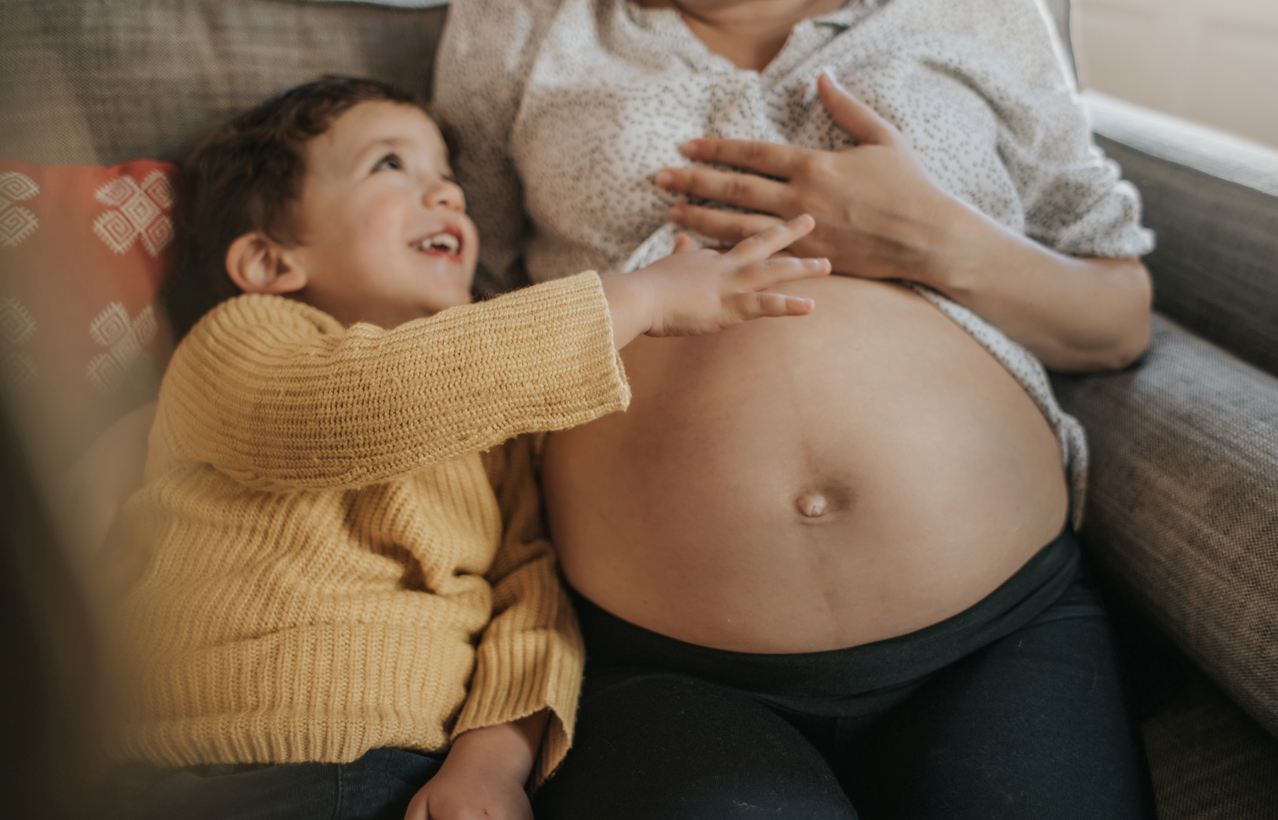
Anything can happen when you take a test. You don't necessarily want to tell your child that a new baby is coming right away, but you might want to prep them for the idea. Remember, nine months is a long time for kids, so you have a lot of time to warm them up to the idea. It can come while you're watching a show together that includes siblings. A question like, "Would you like a little brother or sister someday?" is a good ice breaker to test the water. If they say no, don't be worried. With time, they'll come around to the idea.
3. Have Your Toddler Organize Some of Their Toys for the New Baby
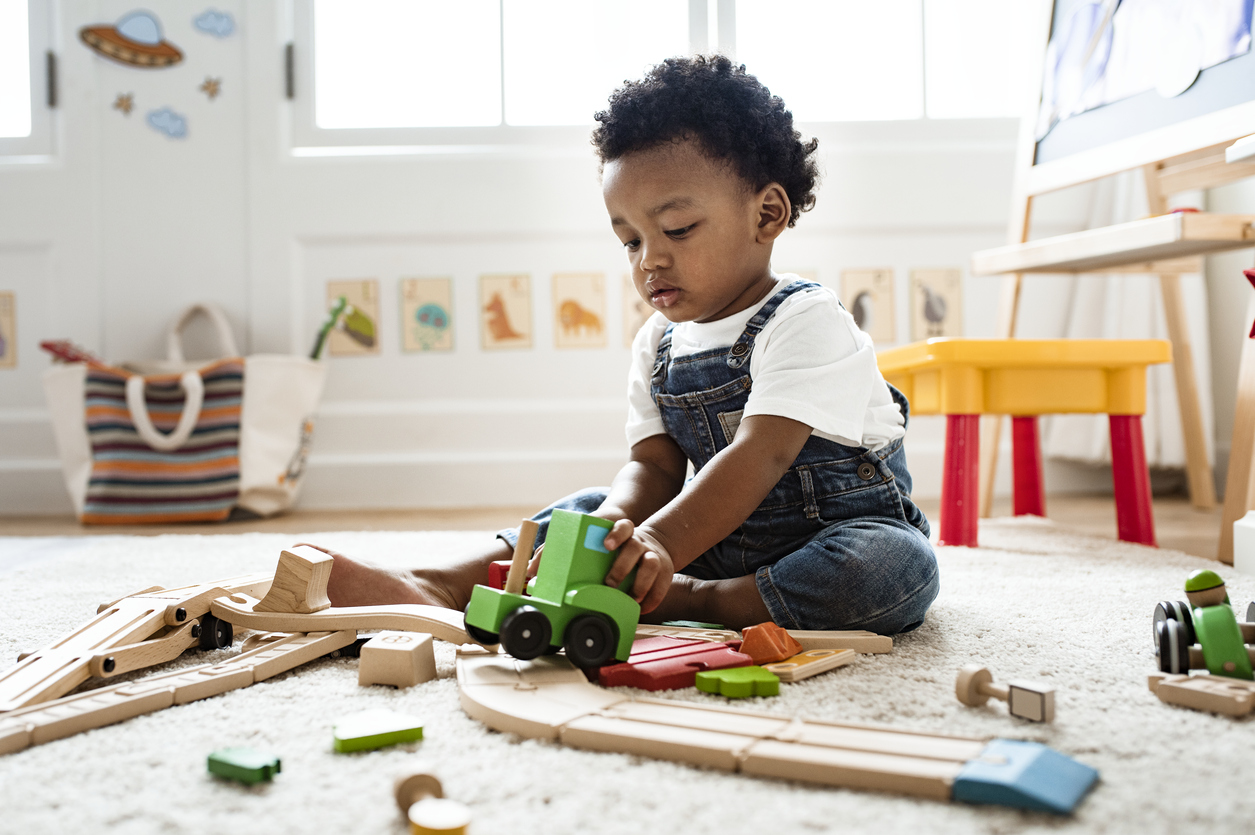
This might be a little tough for a child who's into the word "mine." If your child has issues with sharing, this may be a difficult move to achieve. Approach it lightly. Ask permission, and make sure they know how much the new baby would appreciate using their big brother's or big sister's toys. Some kids will be eager to pass on all of their "baby" items to a younger sibling. Others may feel a bit dejected — but it's still important to reiterate how much a gesture like this would mean to the baby.
This is a big step that'll also set them up for the future. As Parents states, "Rather than dreading these moments of conflict between your children, consider them rich opportunities to help the kids learn critical skills — in this case, conflict resolution."
4. Talk About Activities the Family Will Do Together
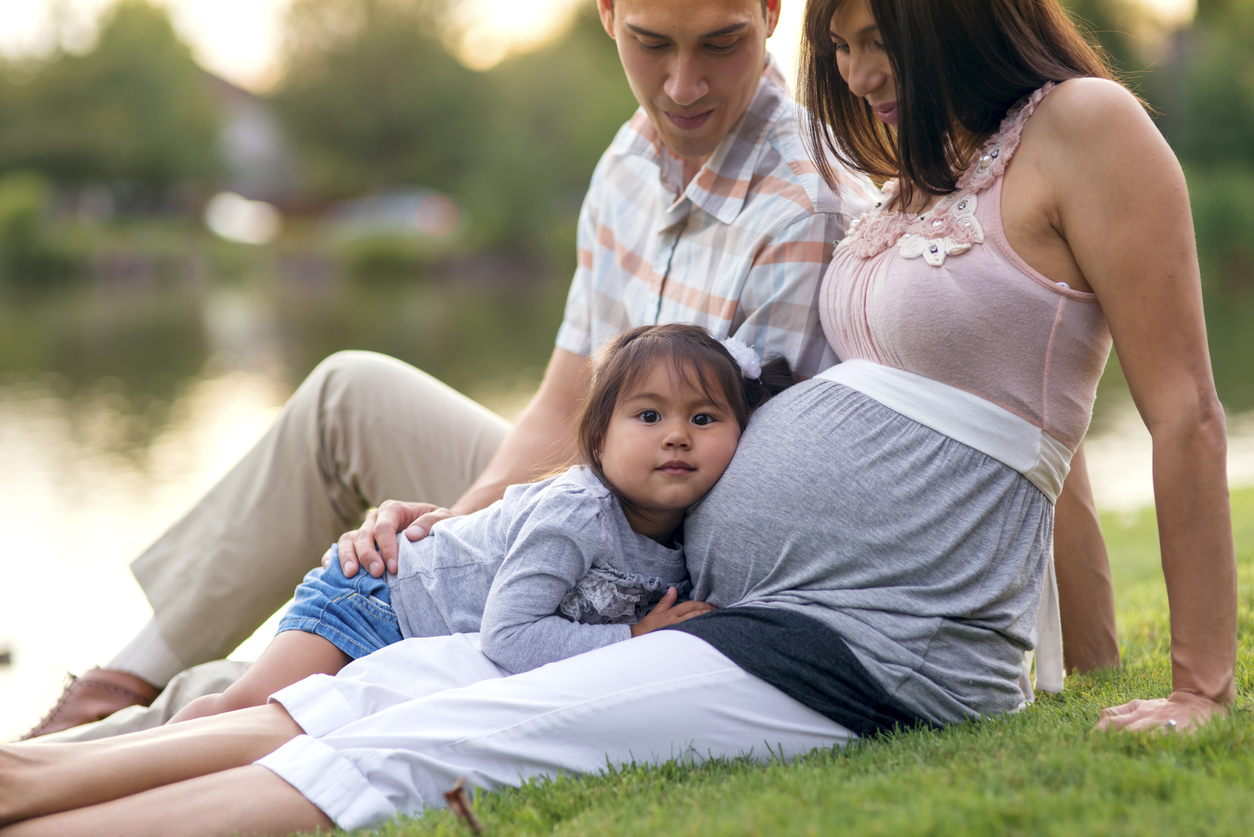
Plan them in advance. That way, as a parent, you'll have something fun booked on the schedule before your brain gets fuzzy based on newborn life. It'll also show your toddler or young child that fun times will still exist for all of you. It's also important to make sure that any traditions with your oldest child remain the same. If the two of you always go to the park on Wednesday afternoons, it's important not to cancel that solely because there's another baby in the picture. Maybe you can take a brief hiatus, but let your child know that they will continue on, and it'll be a special time until they're fully adjusted.
As your kids get older, these special treatments might drop off a little — and that's OK, as long as you make sure you're still engaged with both of your kids. The main purpose is to ease your child into the new transition and let them know that they're not forgotten or shoved aside.
5. Let Your Child Help Decorate the Nursery
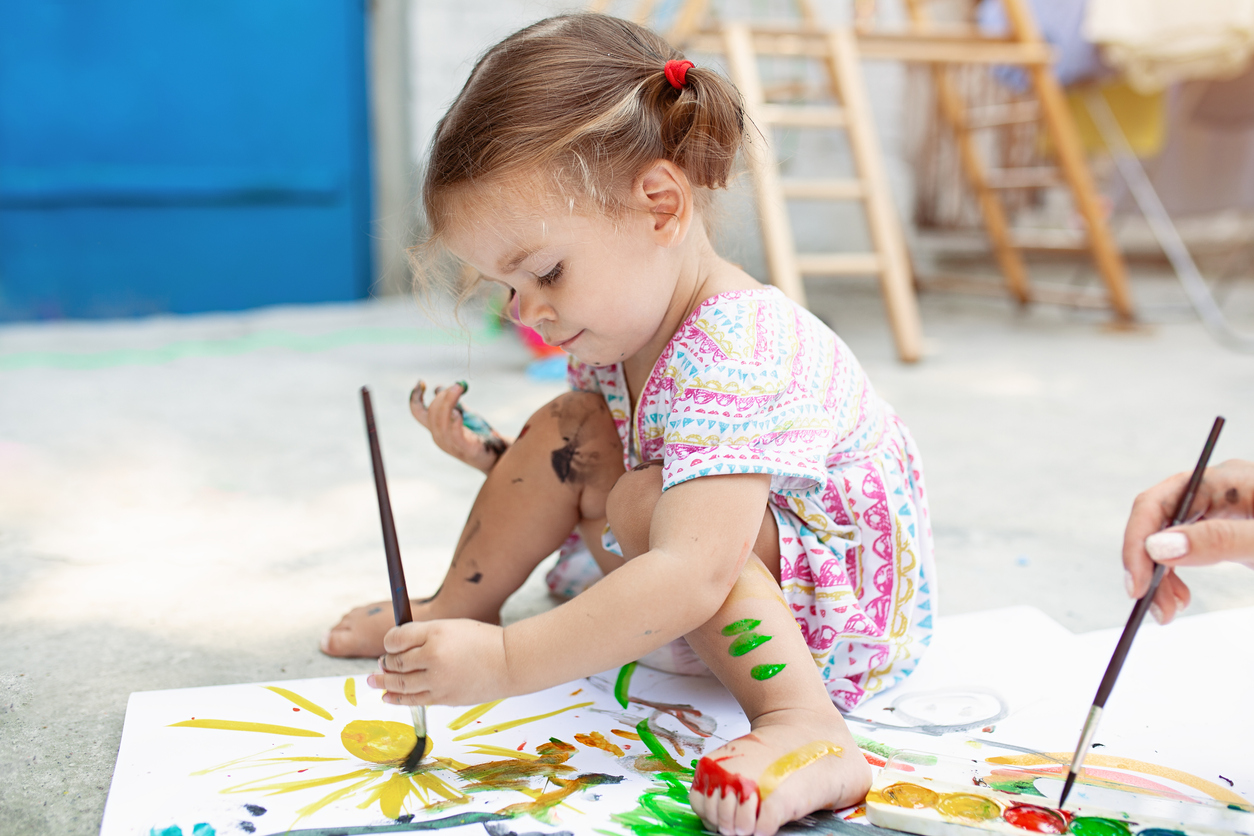
This may be better for older kids, but even younger kids might be able to contribute some cute art for the nursery. That way, they'll feel connected to the baby in their own way. It's also important to treat this as a team effort. Try not to tell your child that it's "your baby" as much as it is "our baby." Make it seem like you, your partner, and your child are involved in this new adventure together, every step of the way.
6. Make Sure You Don't Destroy Their Expectations
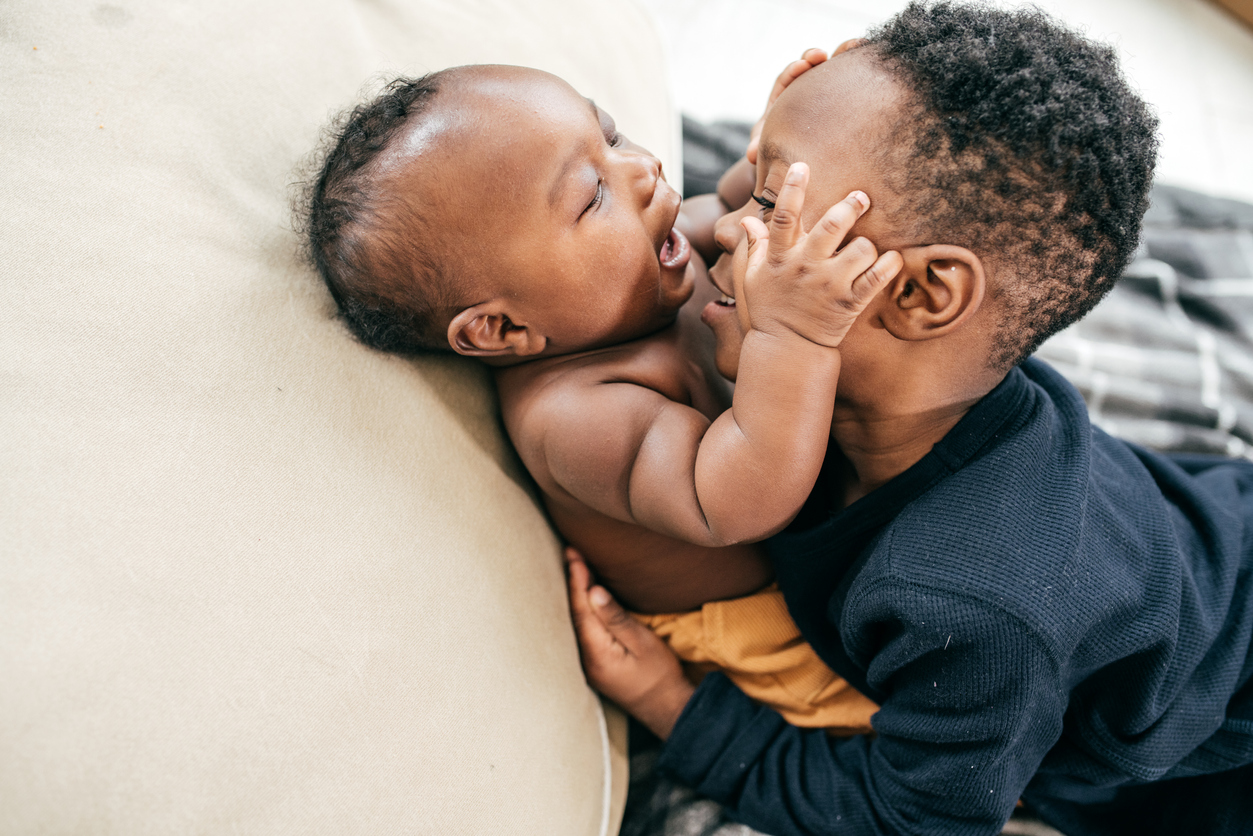
Toddlers don't know much about life stages just yet, nor should they. They may accuse you of being old one day and in the same breath guess that your age is 16. They're not that keen on the aging process in general. And that's OK.
The one thing you'll want to make sure they know is that babies aren't instant playmates. So try to avoid topics of how they'll one day play ball together, or join ballet together — they're not there yet, and that reality is too far away for a toddler to visualize.
Instead, be honest. Tell them that babies cry a lot, sleep a lot, and eat a lot. Tell them that you'll be needing their help, because they are a walking, talking "big kid" while the baby isn't. Then brainstorm ways your child can really help out, even if it's something like making sure there are always baby wipes in the nursery.
7. Buy a Doll So That Your Toddler Also Has a Baby To Take Care Of
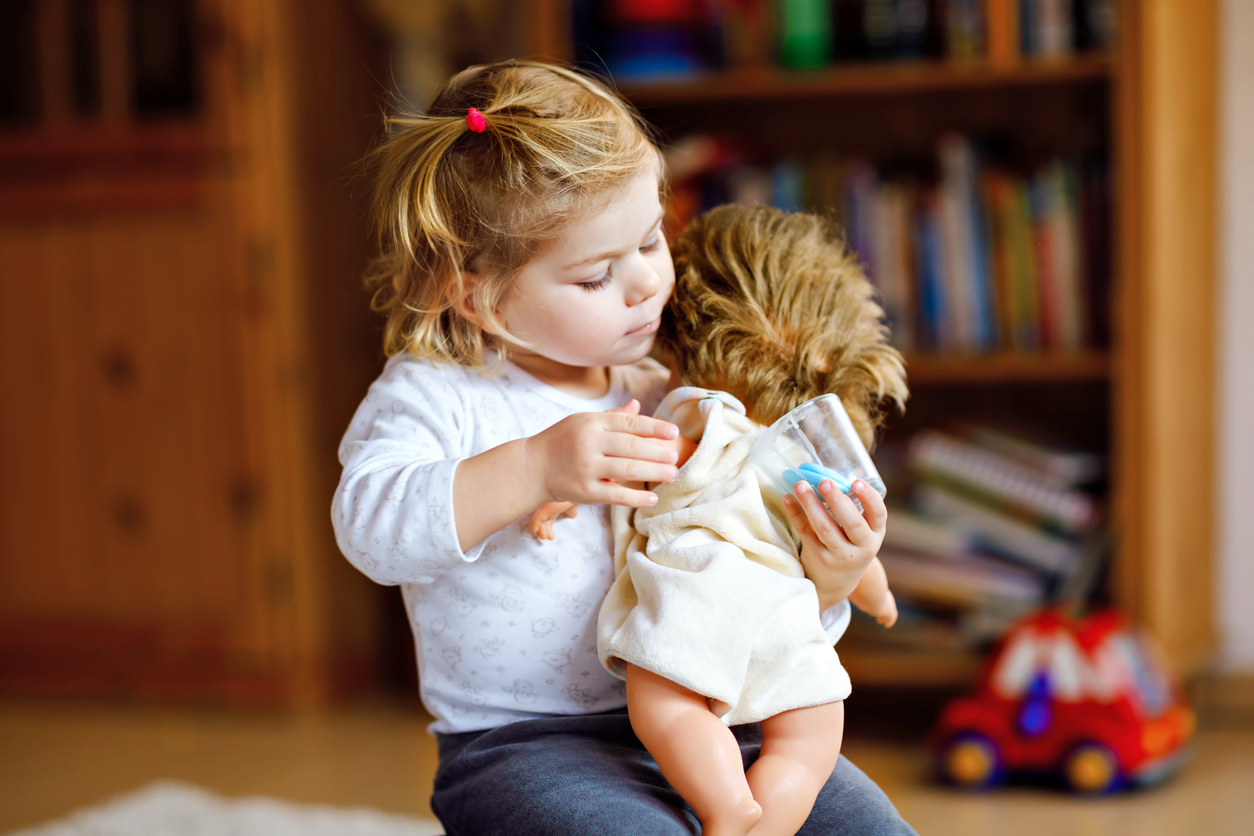
Boy or girl, it doesn't matter — dolls are for everyone. And baby dolls can be a great way for children to feel like they're bonding with you over the new baby. If you are rocking your newborn, ask your toddler to rock theirs with you. Include them as much as you can. They'll feel a stronger connection to both their new sibling and you, since they feel like they're part of the process.
8. Make Sure To Never Disregard Their Feelings

One of your child's first real fears may be the dynamic change when a baby comes along. It's important for you, as their parent, not to disregard these feelings. Let your child feel heard, even if that means that they repeat the same fear over and over again. Asking things like, "What if you love me more than the baby?" means that they're genuinely a little terrified of what comes next. Always reassure them, and remind yourself that no question should be off-limits when it comes to feelings. Show your child that they can come to you with anything without feeling discouraged.

